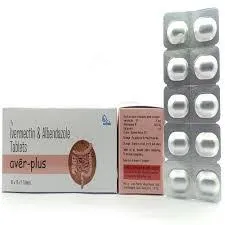- Afrikaans
- Albanian
- Amharic
- Arabic
- Armenian
- Azerbaijani
- Basque
- Belarusian
- Bengali
- Bosnian
- Bulgarian
- Catalan
- Cebuano
- Corsican
- Croatian
- Czech
- Danish
- Dutch
- English
- Esperanto
- Estonian
- Finnish
- French
- Frisian
- Galician
- Georgian
- German
- Greek
- Gujarati
- Haitian Creole
- hausa
- hawaiian
- Hebrew
- Hindi
- Miao
- Hungarian
- Icelandic
- igbo
- Indonesian
- irish
- Italian
- Japanese
- Javanese
- Kannada
- kazakh
- Khmer
- Rwandese
- Korean
- Kurdish
- Kyrgyz
- Lao
- Latin
- Latvian
- Lithuanian
- Luxembourgish
- Macedonian
- Malgashi
- Malay
- Malayalam
- Maltese
- Maori
- Marathi
- Mongolian
- Myanmar
- Nepali
- Norwegian
- Norwegian
- Occitan
- Pashto
- Persian
- Polish
- Portuguese
- Punjabi
- Romanian
- Russian
- Samoan
- Scottish Gaelic
- Serbian
- Sesotho
- Shona
- Sindhi
- Sinhala
- Slovak
- Slovenian
- Somali
- Spanish
- Sundanese
- Swahili
- Swedish
- Tagalog
- Tajik
- Tamil
- Tatar
- Telugu
- Thai
- Turkish
- Turkmen
- Ukrainian
- Urdu
- Uighur
- Uzbek
- Vietnamese
- Welsh
- Bantu
- Yiddish
- Yoruba
- Zulu
nov. . 08, 2024 12:48 Back to list
Doxycycline Hyclate Uses, Benefits, and Precautions in Treatment and Care
Doxycycline Hyclate An Overview
Doxycycline hyclate is a broad-spectrum antibiotic belonging to the tetracycline class. It is commonly prescribed for a variety of bacterial infections, making it an essential tool in modern medicine. This article delves into the properties, uses, side effects, and considerations associated with doxycycline hyclate.
Understanding Doxycycline Hyclate
Doxycycline is the active ingredient, while the hyclate form refers to its salt, which enhances its solubility and absorption in the body. As a semi-synthetic derivative of tetracycline, doxycycline works by inhibiting bacterial protein synthesis. This mechanism disrupts the growth and replication of bacteria, effectively addressing infections.
Medical Uses
Doxycycline hyclate is versatile in its applications. It can treat various infections, including but not limited to
1. Respiratory Infections It is often prescribed for pneumonia and bronchitis caused by susceptible bacteria. 2. Skin Infections Conditions like acne and rosacea can be effectively managed with doxycycline due to its anti-inflammatory properties.
3. Urinary Tract Infections Doxycycline is employed in treating urinary tract infections (UTIs) when caused by specific bacteria.
5. Malaria Prophylaxis Doxycycline is also used as a preventive measure against malaria for travelers heading to endemic regions.
doxycyclin e hyclate

6. Pelvic Inflammatory Disease It serves as part of a treatment regimen for this condition, addressing potential bacterial causes.
Dosage and Administration
Doxycycline hyclate is available in various forms, including tablets, capsules, and injectable solutions. The dosage depends on the type and severity of the infection, age, and overall health of the patient. Typical adult dosages range from 100 mg to 200 mg daily, often divided into two doses. It is crucial for patients to follow their healthcare provider's instructions carefully to ensure effective treatment and reduce the risk of antibiotic resistance.
Side Effects and Precautions
While doxycycline hyclate is generally well-tolerated, it is not without potential side effects. Common adverse reactions include
- Nausea and vomiting - Diarrhea - Pill-induced esophagitis (inflammation of the esophagus) - Skin sensitivity to sunlight, leading to an increased risk of sunburn
In rare cases, more severe effects such as allergic reactions, liver damage, or intracranial hypertension can occur. It is essential for patients to be aware of these potential risks and to communicate any concerning symptoms to their healthcare provider.
Certain populations should exercise caution when using doxycycline hyclate. Pregnant women and young children (under eight years) are typically advised against its use due to the risk of tooth discoloration and potential effects on fetal development. Moreover, individuals with known allergies to tetracycline antibiotics should avoid this medication entirely.
Conclusion
Doxycycline hyclate is a powerful antibiotic that plays a crucial role in treating a wide range of bacterial infections. Its efficacy, combined with a favorable safety profile, makes it a staple in both outpatient and inpatient settings. However, like all medications, it requires careful consideration of its use, potential side effects, and contraindications. Always consult a healthcare professional before starting or stopping any medication to ensure it is appropriate for your specific health needs. By doing so, we not only safeguard our health but also contribute to the responsible use of antibiotics in our communities.
-
Guide to Oxytetracycline Injection
NewsMar.27,2025
-
Guide to Colistin Sulphate
NewsMar.27,2025
-
Gentamicin Sulfate: Uses, Price, And Key Information
NewsMar.27,2025
-
Enrofloxacin Injection: Uses, Price, And Supplier Information
NewsMar.27,2025
-
Dexamethasone Sodium Phosphate Injection: Uses, Price, And Key Information
NewsMar.27,2025
-
Albendazole Tablet: Uses, Dosage, Cost, And Key Information
NewsMar.27,2025













